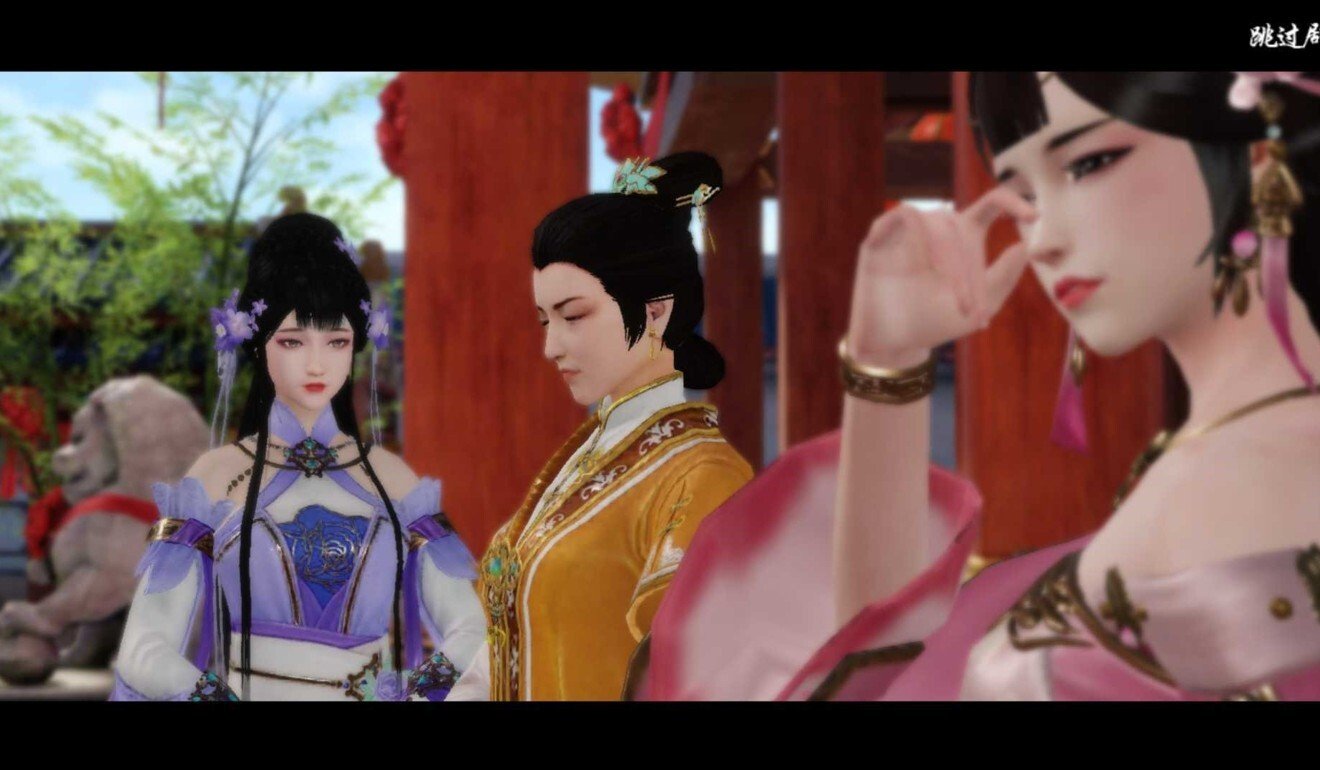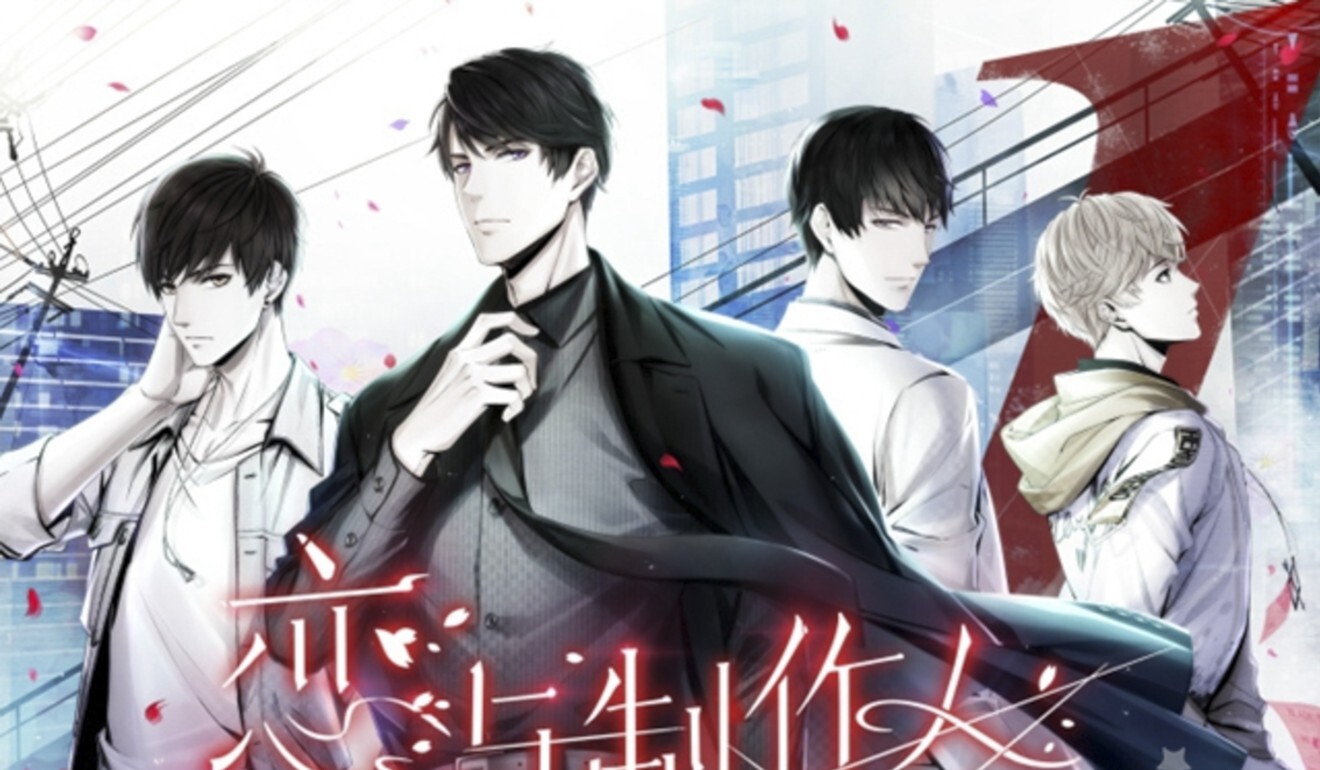
Romance and court intrigue: how female-focused games find success in China despite sexist stereotypes
- The virtual boyfriend game Love and Producer was the first big hit for female-focused games in China
- Gaming companies like Tencent and NetEase are looking to niche areas to attract new players in China’s saturated gaming market
If this sounds like the kind of story you would be into, you’re not alone. This is an episode of Fate of the Empress, a game that’s become popular through its use of court intrigue, puzzle solving, magical battles and romance. It’s also one of an increasing number of Chinese video games designed specifically for female gamers.
“Female-oriented games can be a gold mine that is waiting to be discovered due to the high potential of the target user groups,” said Zhang Chundi, a video games research analyst at Ampere Analysis.

This gaming landscape is different from many Western markets, where games designed specifically for female players seem to attract little attention.
Amanda Cote, an assistant professor of media studies at the University of Oregon, explained that the US gaming industry made several attempts in past decades to create products targeting female players. But most of them quickly crashed.
Many game makers pressed to make money decided early on to focus on young men as their best bet. This would eventually lead to complaints about gender stereotypes and tropes in gaming culture, discrimination against female players and sexism within the industry.
“The video game industry that developed in the US … solidified very quickly around young men as the desired audience and has never really moved away from that,” said Cote, author of the recently published book Gaming Sexism: Gender and Identity in the Era of Casual Video Games.
‘Sexist’ adverts for ‘virtual boyfriend’ game Love and Producer pulled after backlash
China, like other countries in the region, found inspiration for its own female-focused games in Japan. Some researchers have argued that, unlike in the US, Japan’s gaming industry had an easier time making games that appeal both to women and men thanks to the prevalence of a culture focused on cuteness, or kawaii . Just consider the cute-looking monsters in Pokémon .
For China, though, the new-found interest in female-oriented games is mostly due to a saturated market, Zhang said. The most popular mobile game in China today, Honour of Kings, features muscular male and buxom female warriors. It’s a common image found in what some would describe as “traditional” games, but studios are looking for new ground to cover.

Games that target female players have existed in China for a while. But the trend started to become more widely recognised a couple years ago when one of these games went viral, thanks in part to an outlandish gamer gesture.
The role-playing game’s female protagonist is a television producer wooed by four heartthrobs, each of them hoping the player will become their darling. The title, from studio Paper Games, became a smash hit in China. It even briefly overtook Honour of Kings in downloads.
Love and Producer was inspired by Japanese otome games, which are designed for women and often based around dating simulation. But what drew more attention than the virtual boyfriends was how much money players were willing to spend on the game. Zishan Lai, a PhD student in communications and media studies at the National University of Singapore, recalls that one of her friends spent 20,000 yuan (US$2,919) to unlock plots inside the game.
Lai first heard of the game from her friends before the game’s growing popularity started spawning memes. But instead of becoming a dedicated fan, she decided that these types of games should be the topic of her academic research. She found that female gamers liked these games because, among other reasons, they were attracted to the gripping romantic storylines.
“I think the key reason might be that such games satisfy a kind of female fantasy of the ideal male character,” she said.
Zhang says many of these games come from developer teams made up of mostly women, giving them a better understanding of the target audience. But just like how some games fall into the trappings of hyper muscular fighters and sexualised female sidekicks, games designed for female players can also be brimming with stereotypes. These games often have main characters whose lives revolve around men, the goal being to get the desired partner to fall in love.

“You can see in their storyline that romance is the key,” Zhang said. “Everything is around this topic and nothing else. You cannot see female characters that chase her career or something like that.”
Lai argues that many of the games end up reinforcing social expectations for women. These stereotypes are now getting old and risk pushing female players away.
Some analysts, Zhang included, say female-focused games will continue to be a niche market. But interest in these games is also rising.
China now has about 300 million female gamers, according to the 2019 China Gaming Industry Report, which makes up more than 46 per cent of all gamers in the country.
Perhaps that’s why Friendtimes, the company behind Fate of the Empress, is still finding success. Data from Sensor Tower shows that 12 of the company’s games, all with similar content, had 1 million downloads last month in the iOS App Store and China’s various Android stores.
Sexually explicit comments from Black Myth: Wukong CEO spark controversy
While games that target women often rely on stereotypes, they at least expand beyond just chasing virtual boyfriends. There are business simulation and dress-up games, along with games inspired by Chinese historical fantasy novels and imperial court intrigues such as Fate of the Empress and its many derivatives.
While studios can still do more to satisfy the different needs of the female gaming community, female players are now considered important consumers, Lai said.
Female-centred games could soon be invading the rest of the world. Cote notes that media designed for women – whether it’s games, romance novels or so-called chick flicks – have often been dismissed as trivial. But now that women are starting to game more, thanks to the ubiquity of smartphones and prevalence of casual gaming, more of these games could start to break into the US and other Western markets.
“Because female audiences were for so long not invited into gaming spaces, we didn't necessarily see a lot of media targeting them in gaming,” Cote said. “Now that's changing, and I think we may see some of those genres moving over into Western audiences.”

